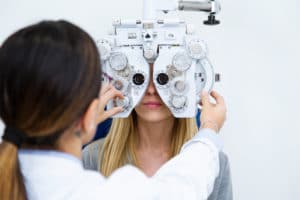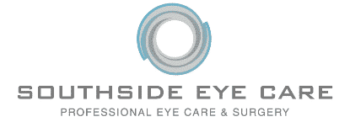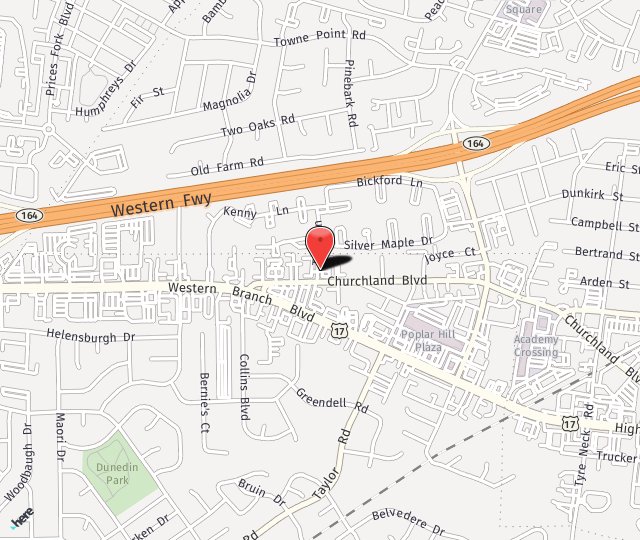Considering the importance each of us places on how we see the world around us, it’s somewhat amazing how most of us take our eyesight for granted. We worry more about changing the oil in our cars than having our eyes examined. But a little attention can go a long way to protecting your vision for the long haul.

At Southside Eye Care, we provide comprehensive eye exams at our Chesapeake, VA office along with more involved eye surgeries and treatments for problems such as glaucoma, cataracts, and floaters.
See What Our Patients Have To Say!
"Dr. Hallberg is amazing! He takes the time to answer any questions and is very thorough! The whole staff are very friendly and they do not make you wait! Great experience, I highly recommend them!"
To read more patient reviews, click here
What Is Tested In A Comprehensive Eye Exam?
Eye exams are so much more than simply telling a person he or she has 20/20 or 20/100 vision. We take these exams very seriously and continually upgrade to the latest technology to not only allow us to check your refraction quality but more importantly, to look for the early signs of any type of eye disease.
Here is a list of what we test in our comprehensive eye exams at Southside Eye Care:
- Refraction assessment — As light enters the front of your eyes, the rays are bent as they reach the retina in the back of the eye. If the light rays aren’t focused onto the proper spot, you have a refractive error, such as farsightedness or nearsightedness. Glasses or contact lenses correct these errors. To fine tune the amount of error and correction we use a phoropter, where alternate lenses are rotated in front of your eyes to find which correction gives you the best vision.
- Visual acuity test — This old standby test uses an alphabet eye chart, also called the Snellen chart. We have you cover one eye and read the letters that get progressively smaller the farther down your read.
- Visual field test — This determines if you have difficulty seeing in any areas of your overall field of vision. We use an automated perimetry machine where you look at a screen with blinking lights on it. You press a button each time you see a blink.
- Eye muscle test — You simply follow an object and we watch your eye movements to check for muscle weakness, poor control, or poor coordination between eyes.
- Color vision test — To test for any color vision problems, we show you several multicolored dot-pattern tests. There are numbers and shapes within the dot patterns. If you have some colorblindness, you won’t see the numbers/shapes in the dots.
- Slit-lamp examination — The slit lamp is a microscope that illuminates and magnifies the front of your eye. We examine your eyelids, lashes, cornea, iris, lens, and the fluid chamber in your eye.
- Retinal examination — Sometimes called funduscopy or ophthalmoscopy, this is the examination of the back of your eye, where the retina, optic disc, and various blood vessels are found. For this exam, we usually dilate your eyes with eyedrops. These keep the pupil from getting smaller when a light is shown on it.
- Glaucoma screening — Glaucoma is a disease where pressure builds inside your eyeball, intraocular pressure. This pressure damages the optic nerve and your vision. For this test, we usually use a puff of air shot onto the front of the eye. This measures the pressure in the eye.
Benefits Of Getting An Eye Exam
During eye exams at our Chesapeake, VA office, our eye doctors evaluate every aspect of your vision and its long-term health. What’s the benefit in that? How important is clear vision to you? Correcting refractive errors is not difficult, but many people live with an old prescription that doesn’t match their current vision quality. That’s silly — our eye exams only take around an hour — when you think of what you’re missing by not seeing the world clearly.
Beyond day-to-day vision, the benefit of having eye exams on a regular basis, especially after you turn 40, is that we can spot conditions such as glaucoma before they do any damage. That’s important because most vision diseases and conditions don’t exhibit any symptoms before they have already damaged your eyesight permanently. But we can spot them during your regular exam and put you on the path of treatment to head off most, if not all, of the potential damage.
For children, refractive errors can be getting in the way of their performance in school. When a child can’t see the chalkboard clearly, they’re at a huge disadvantage. The benefit of an eye exam can be better performance in school and that extends from there through the rest of their lives.
Think about it. Isn’t your eyesight worth an hour every year or two?
How Often Should A Person Have An Eye Exam?
Many people don’t get their eyes examined if they don’t sense any drastic changes with their vision. While that’s not as risky for those in their 20s and 30s, it’s rolling the dice if you’re over 40.
Here is the timeline from the American Optometric Association (AOA) recommends for when different age groups should get an eye exam:
- Children 5 years and younger — Children under three should see a pediatrician to check for the most common eye problems, such as lazy eye. Otherwise, children between 3 and 5 should see the team at Southside Eye Care for their eye examination.
- School-age children and teens — Your child needs his or her vision checked before they enter first grade. From there, vision should be checked every one or two years to be sure their refraction/vision correction prescription hasn’t changed.
- Adults — If you don’t have vision problems and don’t have a family history of eye disease, this is the schedule for adults:
-
- Every five to 10 years in your 20s and 30s
- Every two to four years from 40 to 54
- Every one to three years from 55 to 64
- Every year after age 65
If you wear glasses, have a family history of eye disease, or if you have any chronic disease that can affect your eyes, we recommend that you schedule more frequent eye exams at our Chesapeake, VA office.
When Should Children Have Regular Eye Exams?
Parents know vaccination schedules and many other timeline items with their infants. But they often have no idea when their child should first have his or her eye examined. These exams are critical, however, because poor vision can hold a child back in school performance. Plus, eye exams can catch childhood vision diseases and conditions before they can cause permanent vision damage. The American Optometric Association (AOA) estimates that from 5-10 percent of preschoolers and one-quarter of school-aged children have vision problems.
Are Eye Exams Ever Required?
Most schools require children to have had eye exams before entering school. Even if your school does not have this requirement, you should make it a priority for your child. Various professions, such as airline pilots, bus drivers, and many others, require eye exams as a contingency for hiring or for continuing employment.
Does Insurance Cover My Eye Exams?
Most insurance treats eye exams as preventive care and covers the exam. However, insurance plans and coverages vary widely, so it’s best to contact your carrier and find out. At Southside Eye Care, we work with your insurance carrier to get your exam covered.
Can I Purchase Glasses Or Contacts At The Office After My Exam?
So that you don’t need to run all over town trying to find your glasses or contacts, we have an in-house optical shop in our Chesapeake offices. We have a vast assortment of different eyeglass frames, and we can even show you how to put in your new contact lenses if you have never done it before.
Southside Eye Care proudly serves Chesapeake, Norfolk, Portsmouth, Suffolk and Virginia Beach Virginia as well as the surrounding areas. For more information on eyelid surgery call us at 757-484-0101 today or fill out our contact form for more information.

